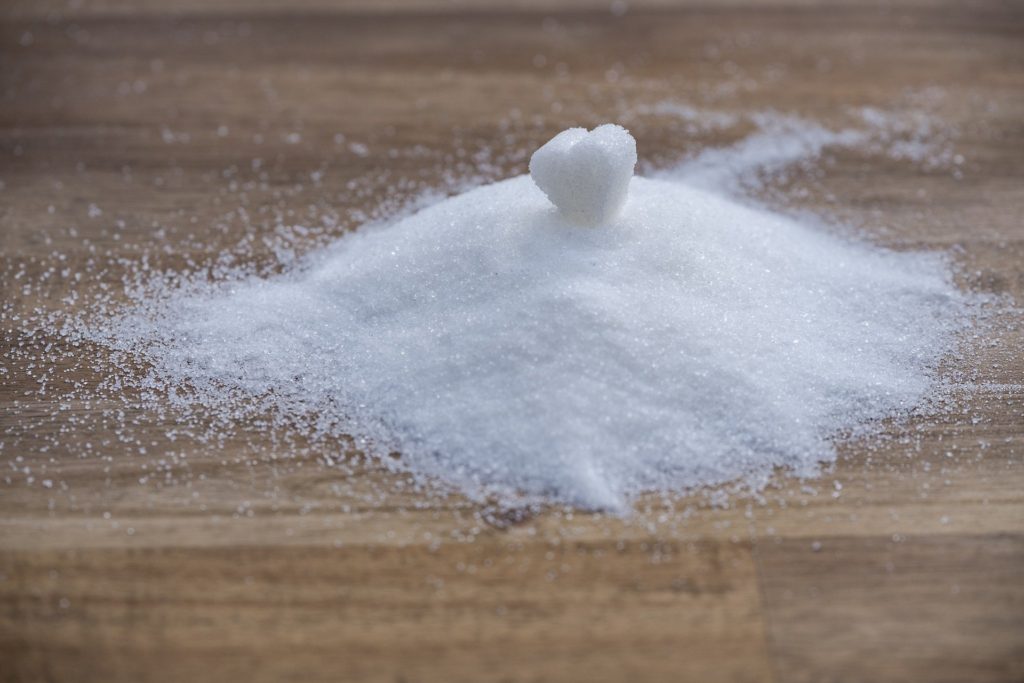Which one should you track to lose weight?
People following the keto diet, or other low-carb plans, may have heard that net carbs are a better measure of carb intake. That’s because net carbs take into account fiber and sugar alcohols found in foods.
Remember, carbohydrates come in simple and complex varieties. Simple carbs are broken down quickly by the body and turn into blood sugar quickly. These are sugars like fructose (found in fruits), lactose (found in milk) and sucrose (table sugar.)
However, complex carbs on keto, like low-carb vegetables, are high in fiber carbs, but low in net carbs.
So should you stop eating vegetables because they’re high in fiber?
Of course not!
If you’re following a keto diet for weight loss, you’ll want to track net carbs instead of total carbs. I’ll discuss exactly why in this article.
What Is Keto?
The keto diet is a low-carb, high-fat diet that focuses on eating less than 40 grams of net carbs per day. The goal with keto is to lose weight by reducing insulin, thus putting you into ketosis. In ketosis, your body uses its own fat for fuel instead of always relying on carbs. This can help you lose weight really easily.
On keto, you must:
- Limit processed foods, grains, and sugars.
- Increase intake of healthy fats like avocados, olive oil, & butter.
- Replace carbs you eat with fats & low-carb vegetables
What Are Total Carbs?
Total carbs are a more general measure of carb intake than net carbs. They take into account all the carbs in a food, including fiber and sugar alcohols.
For example, a salad may have 10 grams of total carbs, but if 8 grams of that are fiber, then it only has 2 grams of net carbs — the ones that actually matter for keto & weight loss.
However, fiber and sugar alcohols aren’t broken down by the body, so they don’t raise blood sugar.
That’s why some people choose to measure net carbs instead of total carbs.
What Are Net Carbs?
Net carbs are the net amount of total carbs in a food minus fiber and sugar alcohols. Since fiber & sugar alcohols don’t raise blood sugar like other carbs, most people choose to not track them on a low-carb diet.
Fiber is found in fruits, vegetables, whole grains, and many other vegetable foods. It doesn’t raise blood sugar, so it’s not counted as a carb.
Sugar alcohols are typically found in medicines, foods, and beverages. Unlike sugar, which is digested quickly, these carbs are not digested by the body and are not absorbed by the bloodstream.
Why Track Net Carbs for Weight Loss?
To lose weight on keto, it’s important to track net carbs instead of total carbs. This is because total carbs include harmless carbs like fiber & artificial sweeteners. However, net carbs only include the carbs that affect your blood sugar.
Food labels often list total carbs, but not fiber and sugar alcohols.
This can make it difficult to gauge your net carb intake and control your weight.
However, if you look at the ingredients, you can approximate how much fiber & artificial sweeteners are in a food & then subtract that from the total carbs.
How to Calculate Net Carbs
If you’re tracking net carbs, you need to subtract fiber and sugar alcohols from the total carbs listed on the food label. To calculate net carbs, do the following: Net carbs = Total carbs – fiber grams – sugar alcohol grams.
If you’re unsure of how many total carbs, fiber, or artificial sweeteners are in a food, you can always search on the internet to find out.
Limitations of Net Carbs for Keto Weight Loss
If you’re doing a keto diet to lose weight, it’s important to keep net carbs under 40 grams per day. That’s because if you eat a lot of net carbs, you’ll spike your insulin, & you’ll get kicked out of ketosis.
As long as you’re not eating any direct carb sources, like fruits, grains, desserts, etc, you’ll likely be under 40 grams of net carbs per day.
Focus on eating foods like eggs, meats, low-carb vegetables, nuts, & full-fat dairy.
Conclusion
If you’re following a keto diet, it’s important to track net carbs instead of total carbs. They’re a more accurate measure of carbs, and will help you stay within the recommended macronutrient intake for weight loss. Most people recommend eating under 40 grams of net carbs per day to stay in ketosis & to continue to lose weight.
If you’re interested in starting the keto diet, but don’t know where to start, I have an article here detailing the benefits of keto & how to start.
- Can You Still Lose Weight If You Aren’t in Ketosis? - February 8, 2023
- Can the Keto Diet Help With Depression? - February 8, 2023
- Why Does Processed Food Make You Fat? - January 2, 2023




